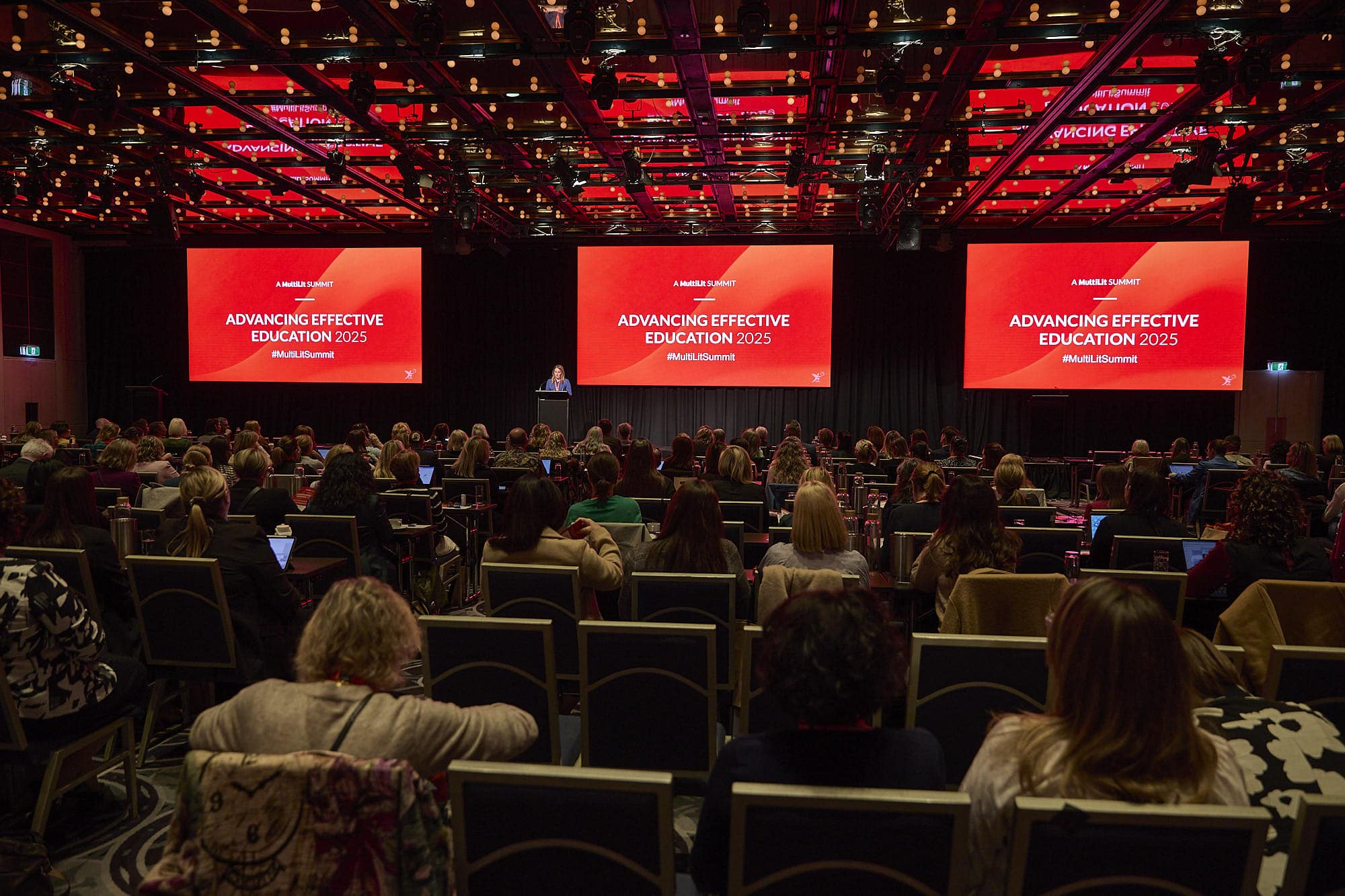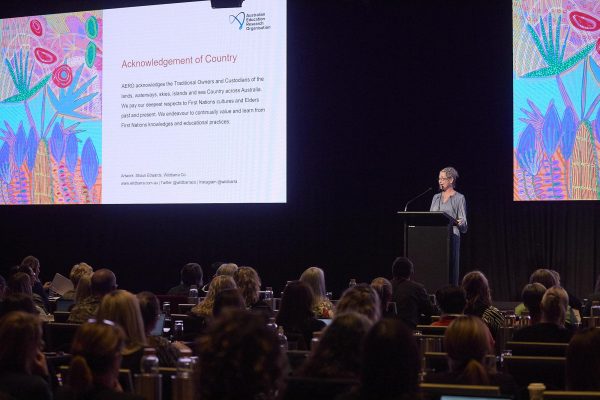In celebration of MultiLit’s 30th anniversary, the Advancing Effective Education summit, held over on 30-31 May, brought together leading educators, policy-makers and researchers to discuss effective instruction, current research and best practices in teaching.
The summit, meticulously curated by MultiLit, aimed to provide an in-depth view of effective instruction in literacy, numeracy and writing by featuring the experiences of education thought leaders around the world, as well as highlighting Australian’s evolutionary change in educational practices. The event showcased a blend of workshops, panel discussions and keynote speeches designed to inspire and inform educators by challenging existing perceptions.
Over 90% of respondents to the post-summit survey remarked that they were happy with the overall quality and experience of the sessions.

View the full gallery here.
Key note highlights
The summit featured an array of esteemed speakers, each contributing unique perspectives. Many commented on the similarities between jurisdictions despite their geographical locations. There were opportunities to learn from the experience of others.
A highlight of the summit was the presentation by Dr Jenny Donovan, Chief Executive Office of AERO. In her speech titled ‘Are we there yet? The long and winding road to evidence-based practice in Australian education’, Dr Donovan took the audience on a trip around Australia highlighting policy updates and emphasising the impact ineffective instruction can have on classrooms.
“An insightful (and also frank) keynote address by Jenny Donovan,” wrote one respondent on key highlights when providing feedback within the post-summit survey.

View the full gallery here.
The summit also featured a range of international speakers, including keynotes on day one from Dr Linda Siegel from University of British Columbia, Dr Jonathan Solity of Optima Psychology, Dr Rhona Stainthorpe from University of Reading. Day two keynotes were presented by Dr Karen R Harris and Dr Steve Graham, both from Arizona State University. Steve Graham’s keynote discussed evidence-based recommendations for teaching writing and outlined what works and does not work in the classroom.
Sessions and workshops
Beyond the keynotes, sessions around writing and handwriting proved to be of particular interest for those in attendance, as well as the insights from school leaders presenting on their own data and experiences.
MultiLit also featured key speakers at the event, with Dr Robyn Wheldall exploring standards of evidence and the differences in the terms commonly used in her presentation, ‘Evidence-based or evidence informed: Coming to terms with terms’. Dr Nicola Bell focused on leisure reading in children with reading difficulties, exploring reviews of existing research and presenting the initial findings of a related pilot study. Dr Alison Madelaine and Anna Taylor presented research into early writing instruction and how it can be translated into effective writing for students in the first three years of schooling. Chloe Allen and Andy Russell discussed the Response to Intervention model within the context of the MultiLit Closing the Gap Initiative, and the challenges and adaptations required to implement structured literacy programs in regional and remote schools.
Closing the sessions for the summit, three workshops were held by our own MultiLit representatives, Dr Mark Carter, Maddy Gotto, Lauren Koch, Anna Taylor, Monica Wright and Georgie Wynne. They offered hands-on experiences and strategies around change management, evaluating evidence and improving literacy through oral language. These sessions provided educators with practical tools and techniques they could adapt and implement in their own practices to improve literacy outcomes. Audience members were elevated to active participants in these sessions, keen to extract insights from the presenters that could help them in their own work to embed evidence-based practices in their own settings.
Additional survey insights: What did attendees think?
Feedback revealed several encouraging trends and constructive observations. The survey highlighted the following key points:
- Engagement and content quality: A majority of participants praised the summit for its engaging content and the quality of discussions. The blend of formal presentations with interactive Q&A sessions was particularly well-received.
- Networking opportunities: Attendees appreciated the opportunity to connect with peers and experts in the field, fostering a sense of community and collaboration that extends beyond the summit.
- Deeper conversations on additional topics: Some participants highlighted the need for further research, resources and discussion on mathematics, numeracy and handwriting.
- Desire for more practical sessions: While theoretical insights were valued, there was a call for more sessions focusing on practical, real-world applications of educational theories in the classroom, particular around intervention practices and implementation of evidence-based practices.
The Advancing Effective Education summit not only served as a platform for knowledge exchange but also planted the seeds for future collaboration and innovation in the field of education. As we look towards the future, events such as these play a crucial role in shaping the educational landscape, making learning both effective and enjoyable.
Advancing Effective Education left participants both inspired and equipped with new ideas and a strong grounding for further exploration of evidence-based practices. While the journey towards truly effective education is ongoing, our MultiLit summit reminds us of the importance of coming together to learn, share and grow.
View the full gallery here.